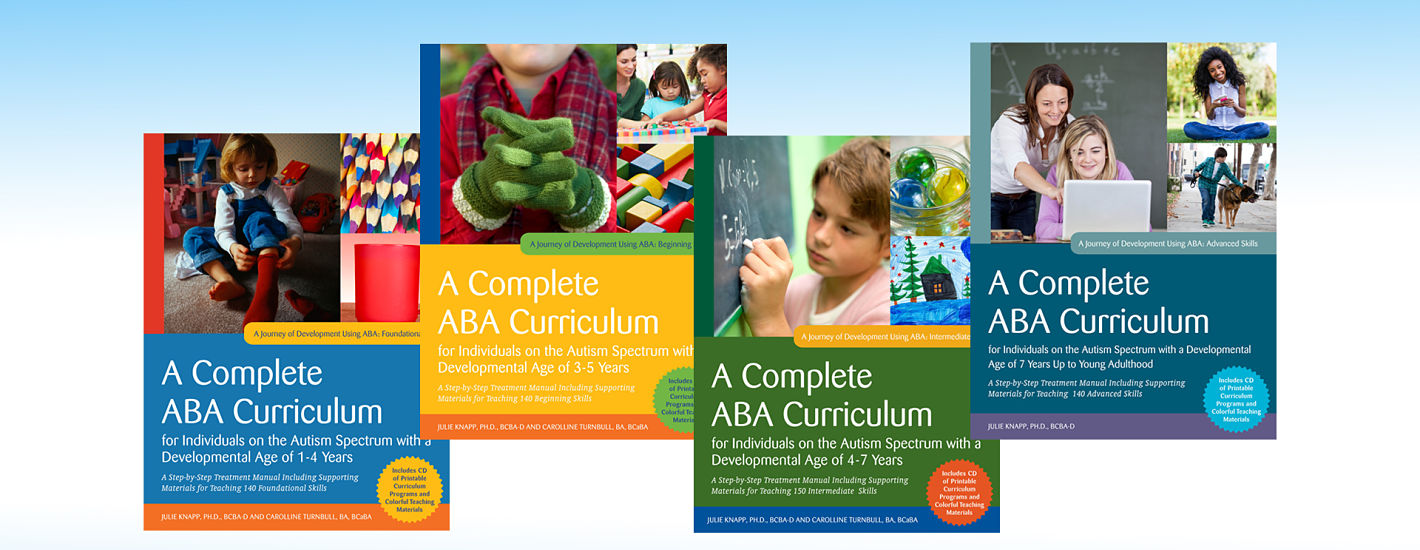
The Knapp Center for Childhood Development has authored its own ABA Curriculum across four books. The Curriculum is appropriate for children as young as one year old (1st book in the series) up through young adulthood (4th book in the series).
Our Curriculum is based on the science and methodology of Applied Behavioral Analysis (ABA). ABA is often considered the “gold standard” of evidence-based educational interventions for children with autism spectrum disorders (ASD). ABA provides a practical and theoretical framework for teaching skills to children with ASD. Decades of research has shown that ABA is effective across learners and skill profiles, supporting that early intensive applied behavior analytic treatment leads to significant gains in children with autism on tests measuring cognitive, language and adaptive functioning. ABA uses careful behavioral observation and positive reinforcement and prompting to teach each step of a behavior and teach a variety of skills. ABA is heavily reliant upon data collection and analysis to guide treatment. ABA includes many specific teaching tools such as discrete trial training (DTT), Pivotal Response Training (PRT), Picture Exchange Communication System (PECS), Self-Management, Differential Reinforcement plans, and a range of social skills training techniques; all of these interventions are critical in teaching children with autism. Ultimately, the goal is to find a way of motivating the child and using a variety of proven effective strategies and positive reinforcement techniques to ensure that the treatment sessions are productive and enjoyable.
By authoring our own curriculum, we are able to offer a systematic approach to implementing ABA, collecting group data, analyzing that data, and making changes for improvement across the span of youth we service.
